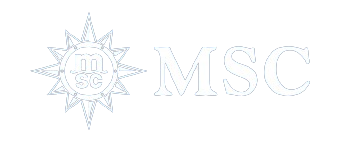– 10 1
In order to ensure that the Carrier is able to carry passengers safely and in accordance with applicable safety requirements established by international, EU or national law or in order to meet safety requirements established by competent authorities, including flag state, the Passenger warrants that he/she is fit to travel by sea and that his/her conduct or condition will not impair the safety of the Cruise Ship or inconvenience other persons onboard.
– 10.2
If it appears to the Carrier, the Master or the Cruise Ship’s doctor that a Passenger is for any reason unfit to travel, likely to endanger safety, or likely to be refused permission to land at any port, or likely to render the Carrier liable for Passenger maintenance, support or repatriation, then the Carrier or the Master shall have the right to take any of the following courses: (i) To refuse to embark the Passenger at any port; (ii) To disembark the Passenger at any port; (iii) To transfer the Passenger to another berth or cabin; (iv) If the Cruise Ship doctor considers it advisable, to place or confine him/her/her in the Cruise Ship’s Hospital or to transfer the Passenger to a health facility at any port, at the Passenger’s expense (v) to administer first aid and administer any drug, medicine or other substance or to admit and/or confine the Passenger to a hospital or other similar institution at any port, provided that the ship’s doctor and/or Master considers that any such steps are necessary.
– 10.3
Unless provided under any applicable law, where a Passenger is refused embarkation as a result of safety and/or fitness to travel, the Carrier shall not be liable for any loss or expense occasioned to the Passenger thereby, nor shall the Passenger be entitled to any compensation from the Carrier.
– 10.4
The Vessel has a limited number of cabins equipped for Disabled persons. Not all areas or equipment on the Vessel are suitable for access to Disabled Persons or Persons with Reduced Mobility.
– 10.5
The Carrier reserves the right to refuse passage to anyone who has failed to notify it of their specific needs with regard to accommodation, seating or services required from the Carrier or terminal operator, or their need to bring medical equipment, or to bring a recognised assistance dog on board the Vessel, or of any other known disabilities, or who in the Carrier’s and/or Master’s opinion is unfit or unable to travel, or anyone whose condition may constitute a danger to themselves or others onboard on the grounds of safety.
– 10.6
Passengers who need assistance and/or have special requests, or need special facilities or equipment with regard to accommodation, seating or services required or their need to bring medical and mobility equipment, must notify the Organiser at the time of booking. This is to ensure that the Passenger can be carried safely and in accordance with all applicable safety requirements. In order to ensure that the Carrier can provide the necessary assistance and there are no issues relating to the design of the passenger ship or port infrastructure and equipment – including port terminals – which may make it impossible to carry out the embarkation, disembarkation or carriage of the Passenger in a safe or operationally feasible manner. The Carrier is not obliged to provide any assistance or meet special requests unless the Carrier has agreed to do so in writing. If the Passenger cannot be carried safely and in accordance with applicable safety requirements then the Carrier can refuse to accept a Passenger or embarkation of a Disabled Person or Person with Reduced Mobility on the grounds of safety.
– 10.7
Those Passengers confined to wheelchairs must furnish their own standard size wheelchairs. The ship’s wheelchairs are available for emergency use only.
Where the Carrier considers it strictly necessary for the safety of the Passenger it may require a Disabled Person or Persons with Reduced Mobility to be accompanied by another person or a recognised assistance dog (according to clause 12.3) who is capable of providing the assistance required by the Disabled Person or Person with Reduced Mobility. This requirement will be based entirely on the Carrier assessing the need of the Passenger on grounds of safety and may vary from Vessel to Vessel and/or itinerary to itinerary.
– 10.8
Where any mobility or other equipment is lost or damaged by the fault or neglect of the Carrier then it is the Carrier’s absolute decision as to whether to repair or replace such equipment. Unless the Carrier agrees otherwise and in writing, Passengers are limited to bringing two (2) items of such mobility or medical equipment on board per cabin with a total value not exceeding £ 2,200. All equipment must be capable of being carried safety and must be declared before the cruise. The Carrier may decline to carry such equipment where it is not safe to do so or where it has not been notified in time to enable a risk assessment to be carried out.
– 10.9
Any Passenger who embarks, or allows any other Passenger for whom he or she is responsible to embark, when he/she or such other Passenger is suffering from any sickness, disease, injury or infirmity bodily or mental or to his/her or her knowledge has been exposed to any infection or contagious disease, or for any other reason is likely to impair the safety or reasonable comfort of other persons onboard or for any reason is refused permission to land at his/her or her port of destination, shall be responsible for any loss or expense incurred by the Carrier or the Master directly or indirectly in consequence of such sickness, disease, injury, infirmity, exposure or refusal or permission to land unless in the case of sickness, disease, injury, infirmity or exposure the same has been declared in writing to the Carrier or the Master before embarkation and consent in writing of the Carrier or the Master to such embarkation has been obtained.
– 10.10
The Carrier reserves the right to require any Passenger to produce medical evidence of fitness to travel in order to assess whether that Passenger can be carried safely in accordance with applicable international, EU or national law.
– 10.11
Pregnant women are highly recommended to seek medical advice prior to travel at any stage of their pregnancy. The Carrier cannot for safety reasons carry pregnant Passengers of 24 weeks or more by the end of the cruise. The Carrier reserves the right to request a medical certificate at any stage of pregnancy and to refuse passage if the Carrier and/or the Master are not satisfied that the Passenger will be safe during the passage.
– 10.12
Failure to inform the Carrier and the Vessel’s doctor of pregnancy will release the Carrier from any liability to the pregnant Passenger
– 10.13
The ship’s doctor is not qualified to delivery babies onboard or to offer pre or post natal treatment and no responsibility is accepted by the Carrier in respect of the ability to provide such services or equipment. Pregnant Passengers are referred to the section herein headed “Medical Treatment” for information regarding the medical facilities onboard.

